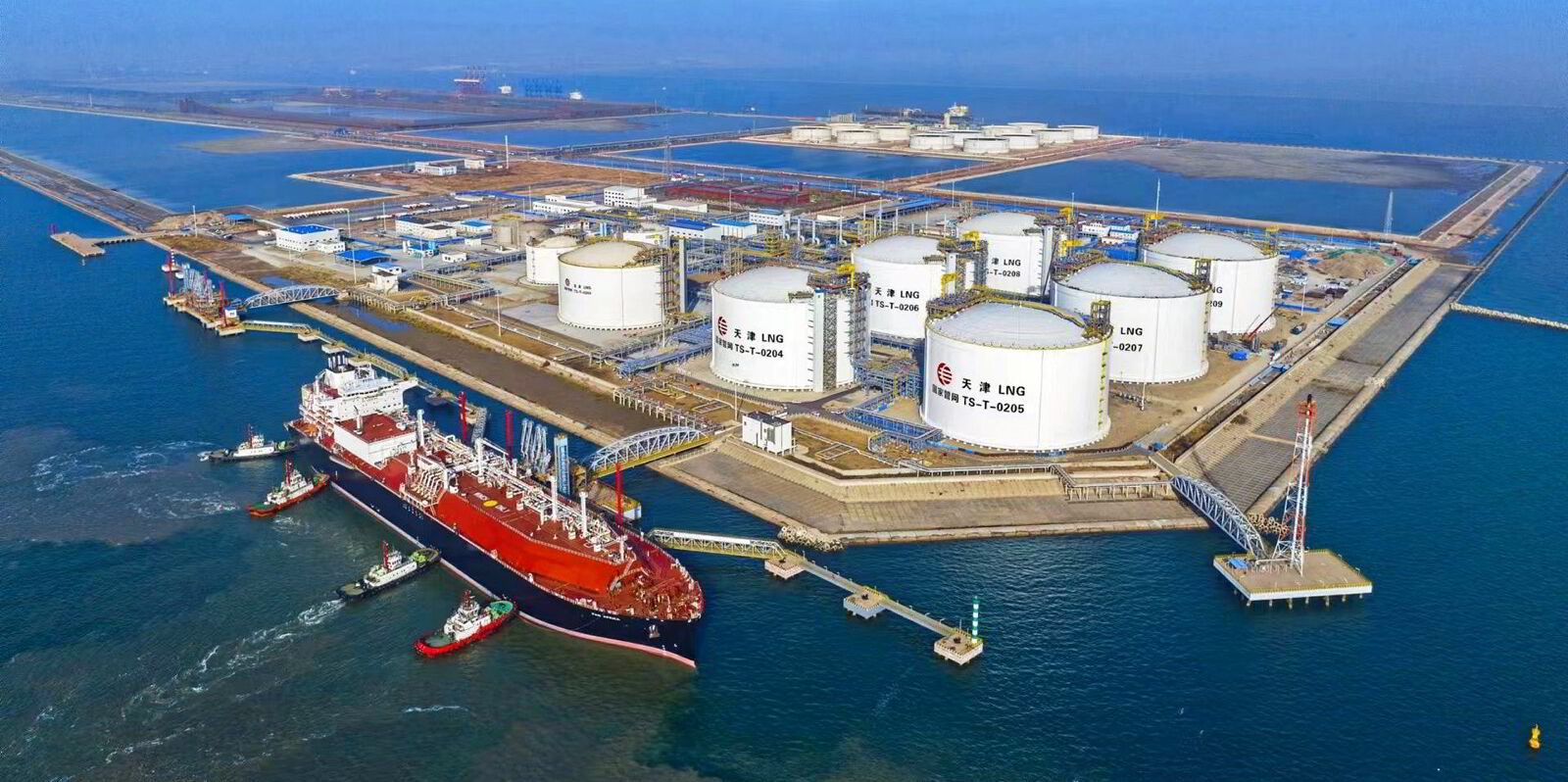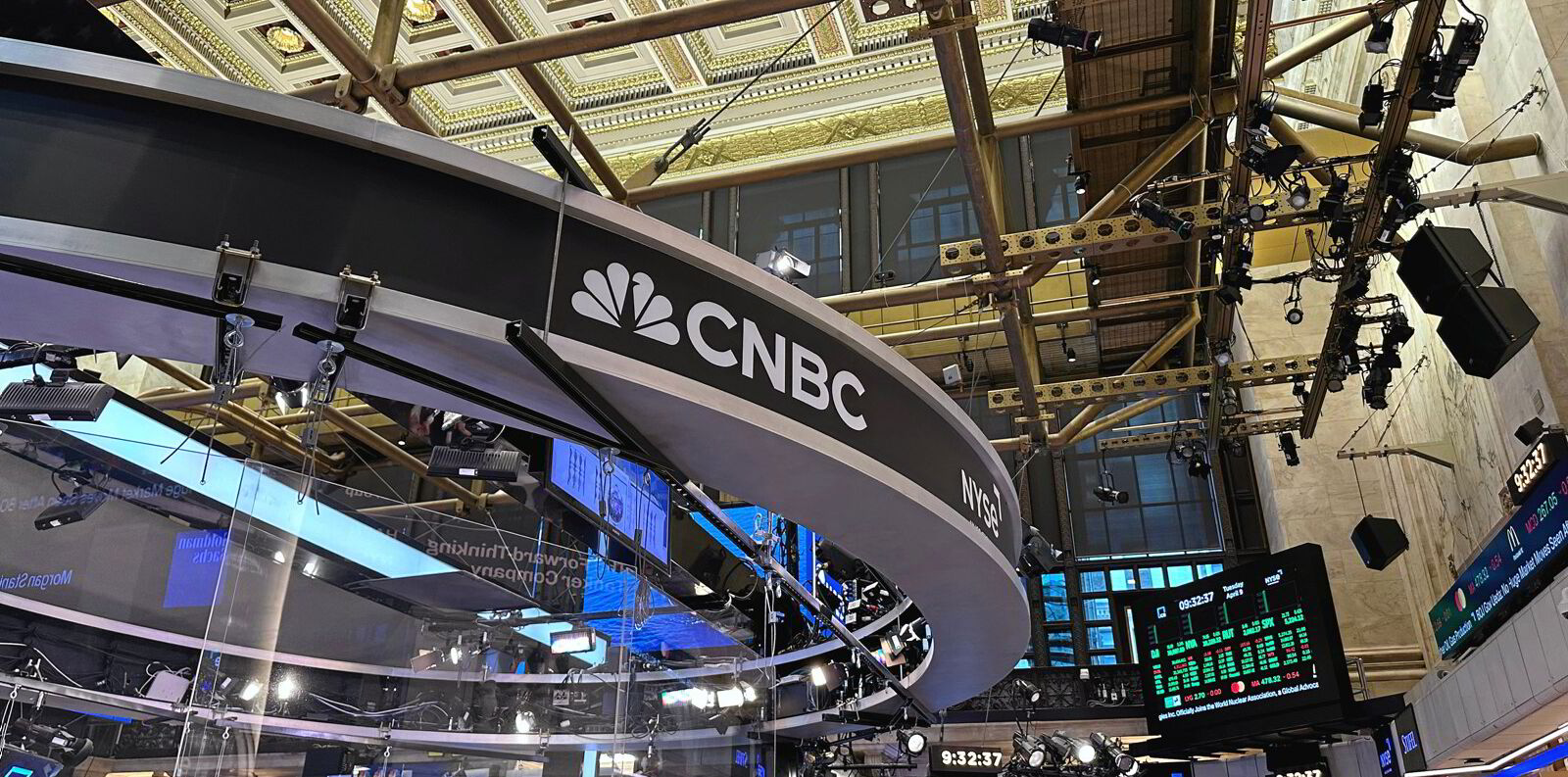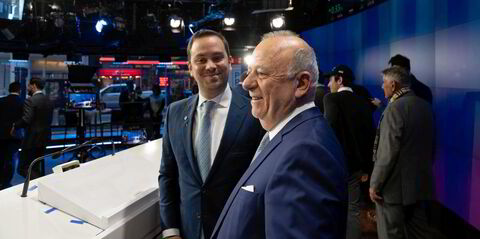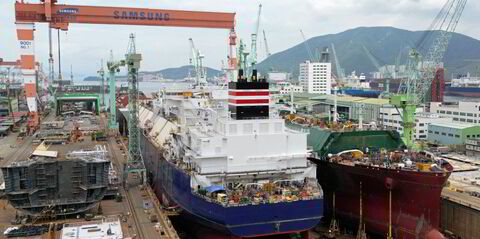Wiley Griffiths of Morgan Stanley has been at the centre of some of the biggest maritime deals of this century.
But at the moment his distinction looks a little different: he is a shipping investment banker in a market where there are precious few shipping deals to be done. And it’s been that way for years.
At times like these, it’s a good thing Griffiths is also a general transportation banker, as he reminded us during a recent catch-up with Streetwise on the sidelines of Capital Link’s New York Maritime Forum.
“In my case, I start covering other verticals,” Griffiths said. “It’s a subset of the coverage universe you’re used to in the capital markets.”
Griffiths is far more likely to be earning his keep on airline or railroad transactions at this point, but he is not giving up on shipping deals by any means.
And unlike other generalist transport bankers, Griffiths got his start in shipping, not the other way around. It’s a sector he still holds close.
This was reflected by his presence at the finance conference and as the host of Morgan Stanley’s always-popular A-list party at Posidonia this past June, as well as in his comments to Streetwise.
“It’s all about playing the long game,” Griffiths explained.
“We’re still having countless conversations with some of the great executives and entrepreneurs who lead this industry, and it’s not ‘if’ but ‘when’ something is going to happen.”
So “when” and not “if,” but one can be forgiven for feeling that the last “when” was a long time ago.
For example, there has been one mainstream shipping IPO completed in New York since the summer of 2015 — the January 2021 flotation of Israeli liner company Zim.
And it’s not just the IPO business that’s lacking.
As TradeWinds reported in January, 2023 was the weakest year in nine years for global capital markets deals in shipping, and by a large margin, as reported by Clarksons Research.
One byproduct of bumper freight markets in most operating sectors is that cash-rich shipowners have little need for equity raises of the sort that Griffiths and the crack Morgan Stanley sales team have spearheaded over the years.
Even with a generally strong rates climate, New York-listed shipping equities also trade at large discounts to their net asset values, putting a further damper on potential share sales.
And while there have been pockets of capital-markets activity this year — particularly in the Nordic bond market — this is not exactly the bread and butter of a US-based investment banker.
Oh for the days when Griffiths was leading equity deals for the likes of Teekay, Scorpio Tankers, Nordic American Tankers, Costamare and Ardmore Shipping.
TradeWinds has had this discussion about a multi-year deals slump with Griffiths before — and that was for a profile published in … wait for it … 2018.
Talk about the long game.
But Griffiths was in good spirits for our chat at the Metropolitan Club in Manhattan, ready to accentuate the positive.
Speaking more generally, he recalled the pain of the overall US IPO market being closed for nearly two years before reopening last spring.
“That was frustrating,” he conceded. “But it reopened in April and all capital markets are working right now. Interest rates are a little higher, but people are coming into an attitude of acceptance about that.”
Even when not doing shipping deals, Griffiths is a keen observer of what’s happening in the equity market.
“What’s been happening is that the public companies are becoming more investable,” he said.
“Through consolidation led by the likes of Star Bulk, and some of the other roll-ups that have been done, it’s produced a smaller group of investable companies rather than this mega-universe of shipowners.
“It’s more of a niche sector where you’re going to have three to five larger leaders in each operating sector.”
This is a good thing, he maintained: “Investors will be more willing to get into them because they won’t be afraid they’re too small to get out of them.”
Streetwise found Griffiths welcoming two of those market leaders — Star Bulk Carriers’ Petros Pappas and Costamare’s Greg Zikos — over the summer at the Posidonia party outside of Athens.
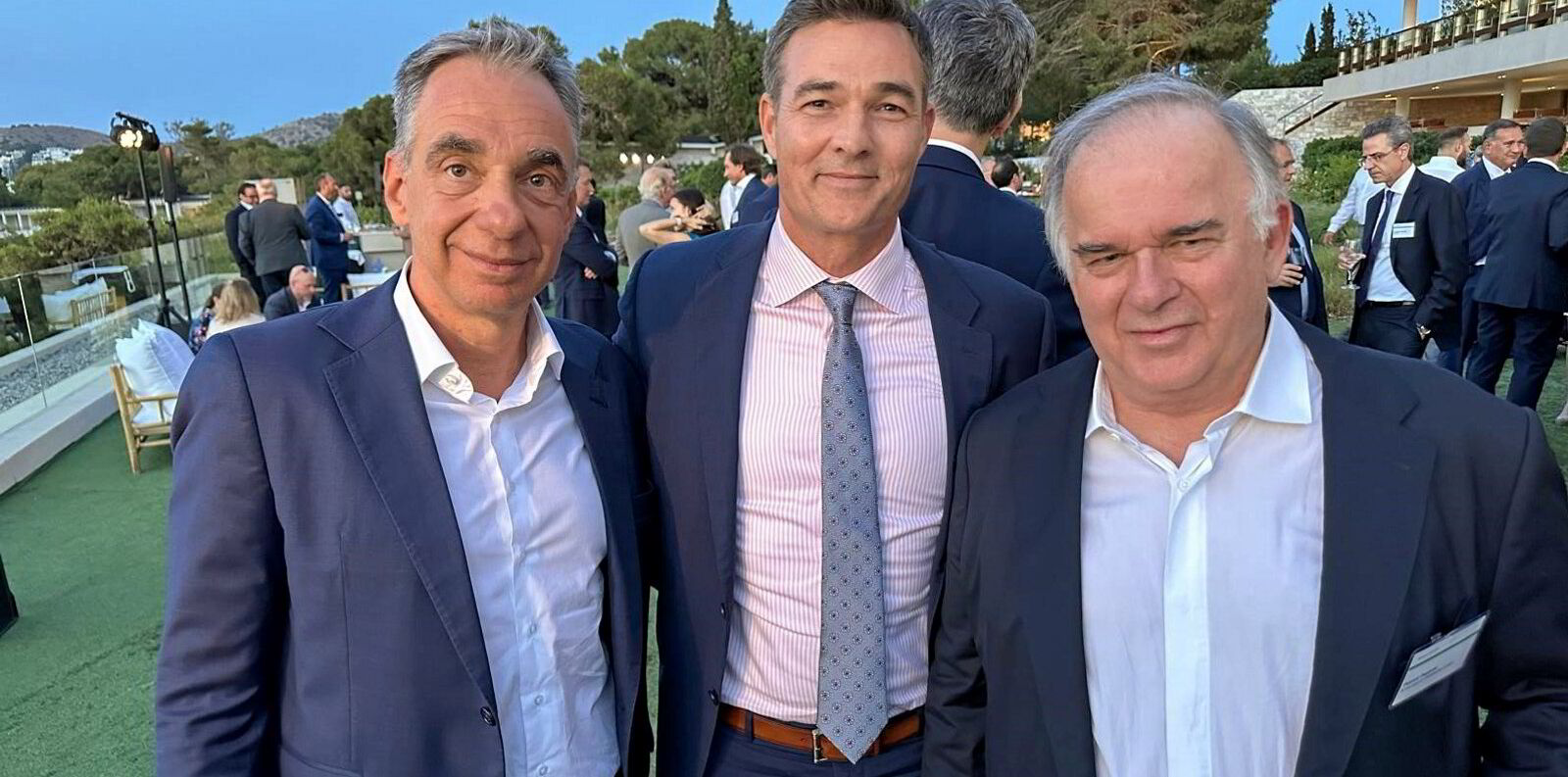
Griffiths said such gatherings not only reflect the long game but also the wealth game: Morgan Stanley has built an active role over the past 25 years, managing money for high-net-worth individuals that include Greek shipowners.
“A big part of Posidonia for us is wealth management,” Griffiths said. “That’s a business we’ve built up over the past 25 years and it’s our ballast.
“Those shipowners might not be doing big capital markets deals right now but they probably have a lot of assets under management with us.
“Then too, we value the role of being trusted advisors. Obviously, you’d like to be getting paid on a deal, but even when we’re not, there’s value in being there with good advice.”
But realistically, at some point, it does have to be about the fees. And the good thing from Griffiths’ corner is that he sees those coming, too.
One area to watch, he tells us, is the batch of companies that have been taken private by funds, particularly in the LNG sector. Examples include Stone Peak Capital’s move on Teekay LNG and Black Rock’s investment in GasLog, which has been divested this week.
“There will probably be a few IPOs coming from those cases,” Griffiths said. “Companies like Stone Peak and BlackRock that got into LNG will get out either by selling their shares or going public. It looks to us like some of that will go the way of the IPO market.
“And then you don’t know what you don’t know. You never know what the catalyst might be that could produce a small batch of other IPOs.”
So deals might be back. And with the fees. But it may take some more time.
And when that’s the case, it’s good to play the long game.
It’s good to have deals in the air or on the rails.


